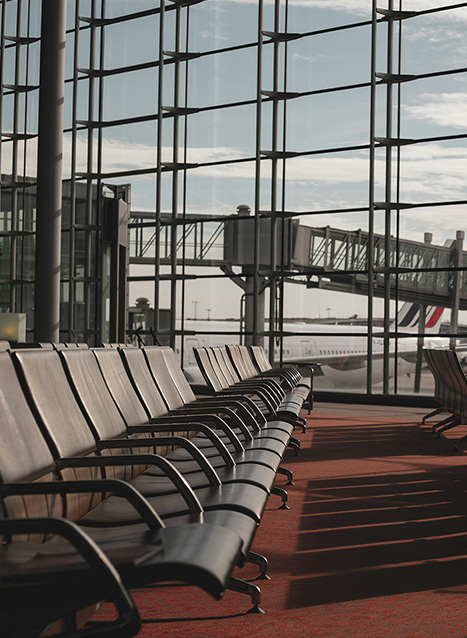Evacuations from Israel and High-Risk Locations Call +44 (0)1202 308810 or Contact Us →

Travel Information for Ramadan 2018
11 Apr 2018
The Islamic holy month of Ramadan is due to begin on either 16 or 17 May 2018. The start date is determined by the lunar cycle and will be announced by leading religious authorities in Saudi Arabia, also determining the official religious commencement for most countries in the Middle East.In Europe and North America, Muslim communities have announced that they will begin Ramadan on 16 May. Ramadan lasts for around 30 days and is due to end on the 14 June.
Key Points
- The Islamic festival of Ramadan is scheduled to begin on 16 or 17 May 2018, depending on the lunar cycle.
- The festival involves fasting during daylight hours, with no eating, drinking, or smoking allowed in public areas.
- In the past, the holy month of Ramadan has seen an increased frequency of terror attacks.
Situational Summary
Travel Information: The Islamic holy month of Ramadan is due to begin on either 16 or 17 May 2018. The start date is determined by the lunar cycle and will be announced by leading religious authorities in Saudi Arabia, also determining the official religious commencement for most countries in the Middle East. In Europe and North America, Muslim communities have announced that they will begin Ramadan on 16 May. Ramadan lasts for around 30 days and is due to end on the 14 June.
During Ramadan, Muslims will fast during daylight hours. Muslims are not allowed to eat, drink, smoke, or chew gum during this time. Every able-bodied Muslim is expected to take part; however, exceptions are made for children, military personnel in combat, and those who are ill, elderly, or pregnant. Following sunset, Muslims take part in a celebratory meal called Iftar.
Solace Global Comment
The annual Muslim festival of Ramadan has some implications for foreign travellers, especially for trips to countries in the Middle East. Countries, such as Saudi Arabia, Qatar, the UAE, and Iraq are known to reduce their business working hours during Ramadan. In the UAE for example, the work day is reduced by two hours, and there is a country-wide ban on outdoor labour between 1200hrs and 1500hrs. The change in working hours can limit business operations in such countries. Many government institutions postpone major business meetings until after Ramadan. At the end of Ramadan, Muslims celebrate Eid al Fitr. This is a three-day festival, which is due to start around the 14 June 2018 and is a national holiday in Muslim-majority countries. Government and national businesses will be closed during Eid al Fitr.
In many Muslim majority countries, restaurants will be closed during daylight hours. Non-Muslims are also expected not to eat or drink in public areas; this includes smoking and chewing gum. Countries which heavily uphold this tradition include Libya, Algeria, Saudi Arabia, and the UAE. Indeed, in Saudi Arabia and Algeria, it is illegal to break the fast during daylight hours in public. In some countries, such as the UAE, certain restaurants and coffee shops catering to tourists may remain open discretely. Driving in Muslim-majority countries during Ramadan may be more erratic than usual and there is a trend of an increase in traffic accidents around the time of Iftar – the time of day at which the fast is broken. Drivers may be dehydrated, and taxi drivers may have been driving longer than is safe. Traffic congestion is likely to be higher than normal in the evening as city centres remain open until the late hours.
In 2017, both Al Qaeda and the Islamic State (IS) groups called on their supporters to conduct terror attacks during Ramadan, with IS vowed ‘all-out war’. This led to notable attacks against a convoy of Coptic Christians in Egypt, Philippines security forces fought militants in the city of Marawi, an Islamic State truck bombing in Kabul killed 150 people, and eight were killed and more than 50 injured in the London Bridge attack in the UK. After Ramadan in 2016, the Islamic State claimed that it had been responsible for the deaths of over five thousand people during the holy month. This figure is disputed, but there was certainly a significant increase in terror activity during the Ramadan of 2016. In anticipation of potential terror attacks, there is likely to be an increased security presence in Muslim-majority countries during Ramadan, particularly those with persistent Jihadist insurgencies. As it has lost territory and suffered military defeats, Islamic State has increased its terror activity in Muslim and non-Muslim-majority nations. Notably in the West, this has taken the form of low technology attacks using knives and vehicles. Possible targets may include mosques, tourist areas, and busy restaurants. Travellers can also expect an increase in security at Islamic sites in non-Muslim countries.
SECURITY ADVICE
TravelLowDepending on the countries being visited, travellers should adapt their behaviour accordingly; local laws and customs should be respected at all times. While experiences may vary, if travelling to a Muslim-majority nation during Ramadan, the following practices should be followed.
There is likely to be travel disruption in many countries during Ramadan, and business hours are likely to be reduced. Travellers should prearrange all transport between 1700hrs and Iftar as availability of taxis and other car services are likely to be limited during this period especially.
Security measures for travellers during Ramadan will depend on the country being visited. Solace Global would advise clients to employ enhanced security measures for countries such as Iraq and Libya, while for other locations this may not be necessary. Travellers should also employ travel-tracking technology with an intelligence feed in order to keep abreast of security developments. For all travel during this period, travellers are advised to maintain an enhanced level of situational awareness and employ sensible security precautions.